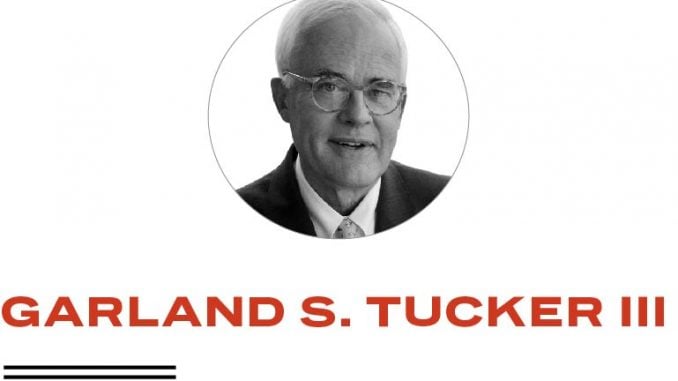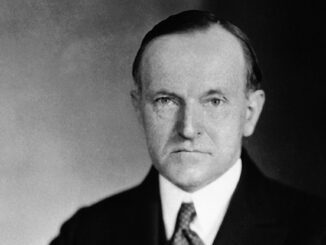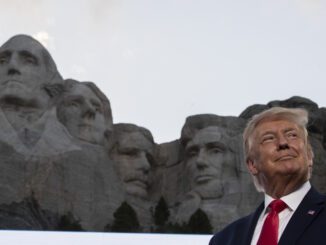
In March 1929, outgoing President Calvin Coolidge offered some sage advice to his successor Herbert Hoover. On the drive from the White House to the Capitol, the typically dour Coolidge noted wryly, “As president, you have to stand every day for three to four hours to meet all sorts of visitors. Nine-tenths of them want something they ought not to have. If you keep dead-still, they will run down in three minutes or less. If you even cough or smile, they will start all over again.”
None of Coolidge’s successors — including Hoover— has tried to heed Silent Cal’s advice. Coolidge was on to something important. He had a clear understanding that there are many things government cannot do successfully, and he never hesitated to say so.
When the Boston police force went out on strike in 1919, Gov. Coolidge sympathized with the police force’s demands, but he famously ended the strike with these words, “There is no right to strike against the public safety by anybody, anywhere, anytime.”
When Congress passed the McNary-Haugen Bill to offer assistance to America’s hard-pressed farmers, Coolidge, himself from a Vermont farm family, vetoed it as “a tax for the special benefit of one particular group.”
During the great Mississippi River flood crisis of 1927, there was tremendous pressure on Coolidge to go offer federal aid to the flood-ravaged areas. Instead, he sent Commerce Secretary Hoover to coordinate state and private relief agencies and otherwise kept the federal government out of it. He acted similarly when his home state of Vermont experienced terrific flooding.
Can you imagine a modern politician passing up these photo-ops?
As a politician, Coolidge practiced the art of saying “no” to constituents when it was not in the best interest of the country as a whole or contrary to the constraints of constitutional government.
Surprisingly, he was able to deliver this message consistently while racking up a long string of electoral successes. He based his adherence to economy in government on practicality — business-like discipline of balanced budgets— and on morality. He believed well-meaning progressive programs designed to assist voters ultimately led to debilitating dependency. People believed Coolidge when he said, “I am for economy in government — not to save money, but to save people.”
Another historic snapshot illustrates how far our modern thinking has drifted away from limited government. In 1887, Congress presented President Grover Cleveland, a Democrat, with the Texas Seed Bill. A drought had devastated Texas farmers and a sympathetic Congress appropriated a modest $10,000 expenditure for agricultural seeds. Cleveland promptly vetoed the bill. He noted that the need could easily be met from charitable contributions — which it ultimately was.
More importantly, he wrote, “Federal aid in such cases encourages the expectation of paternal care on the part of the Government and weakens the sturdiness of our national character.” Cleveland concluded by insisting that “though the people support the Government, the Government should not support the people.”
In the decades since Cleveland and Coolidge, politicians have steadily become more compliant to voter demands for assistance. There are few politicians today — Republican or Democrat — who will take consistent, principled stands for limited government, reduced spending and balanced budgets. It’s obviously far easier to say “yes” than “no.” Whether it’s health care, homeownership, education, small business, import/export banking and on and on, there are seemingly endless demands for government spending and assistance.
The federal government is now expected to act where its intervention was never contemplated by the Constitution and where it has not been — and can never be — economically effective. It is no accident that three of our most troubled industries — housing, education and health care — have been seriously disrupted by well-meaning government programs.
It seems to be impossible for any modern politician to respond candidly to voter demands by saying, “No. The government just cannot do this effectively. We should leave it to the private market.” Instead, politicians are over-eager to appear responsive and to promise relief from every economic and social problem — and the result is a $22 trillion deficit.
Our well-intentioned politicians are simultaneously bankrupting the country while producing a citizenry that is dependent on government. They need to recover the lost art of saying “no.”
Garland S. Tucker III is a Raleigh business executive, historian and author. His latest book is “Conservative Heroes: Fourteen Leaders Who Shaped America, from Jefferson to Reagan.” He is a candidate for U. S. Senate in the North Carolina 2020 Republican primary.


